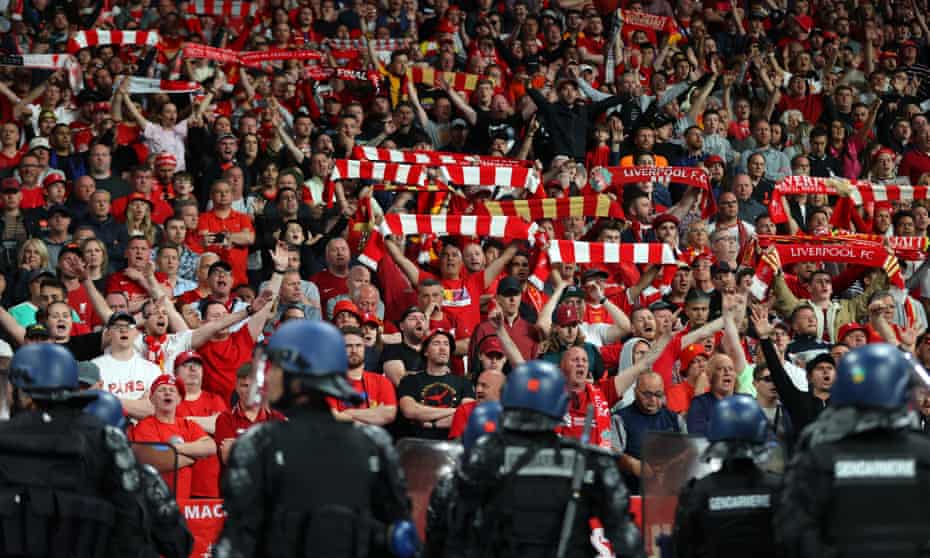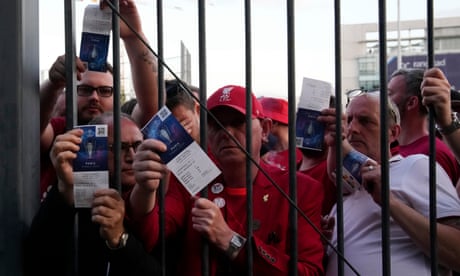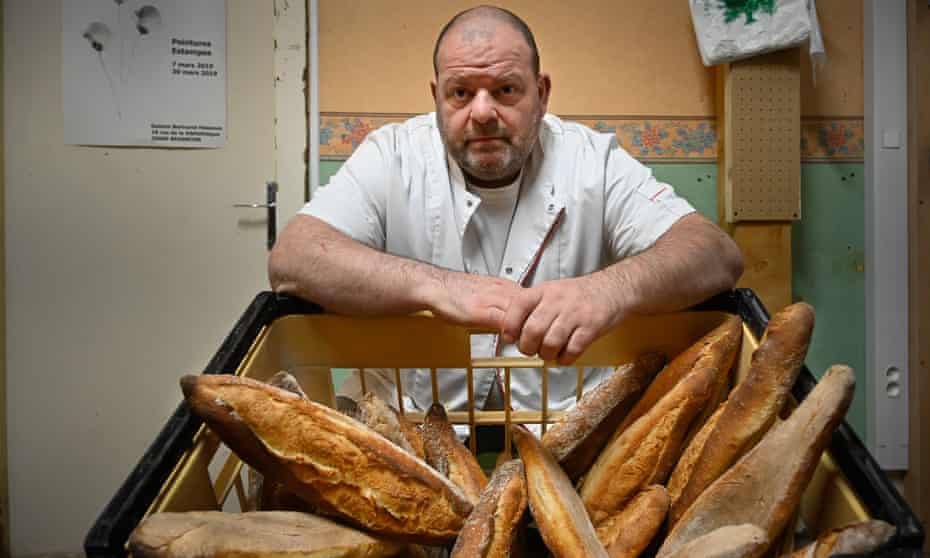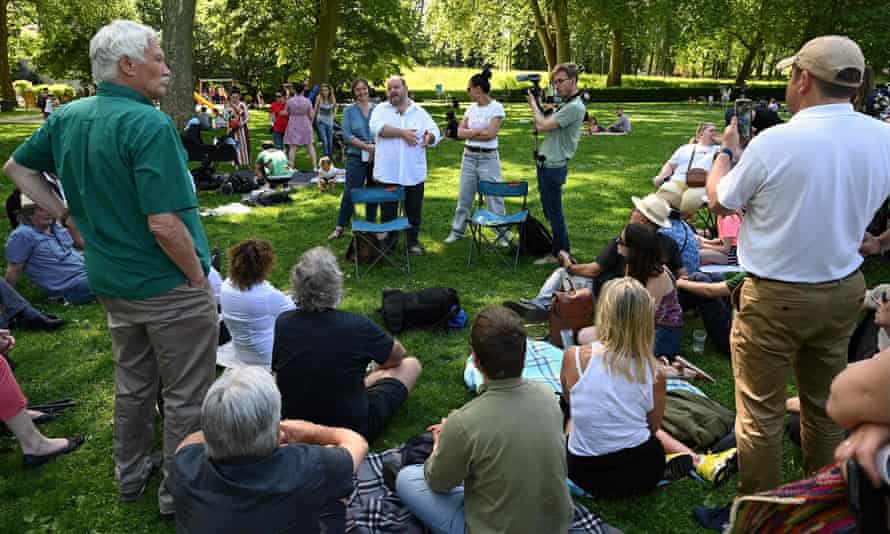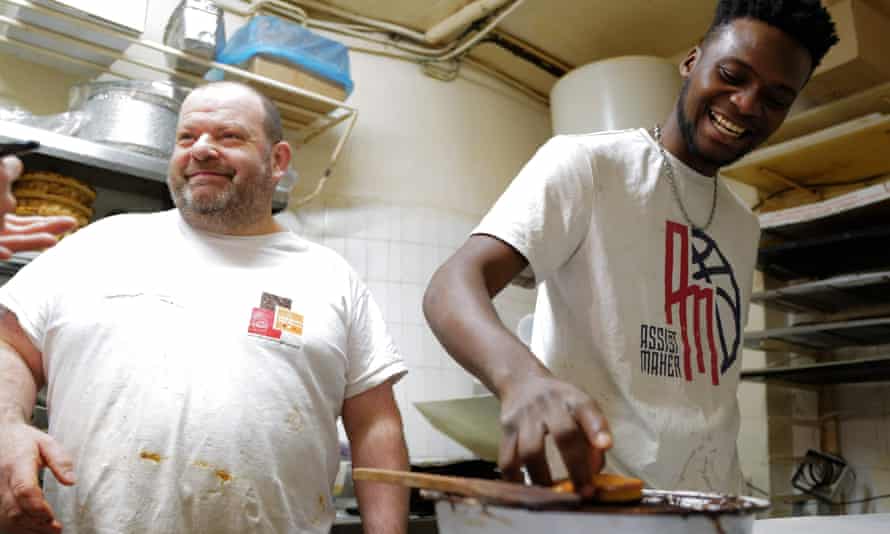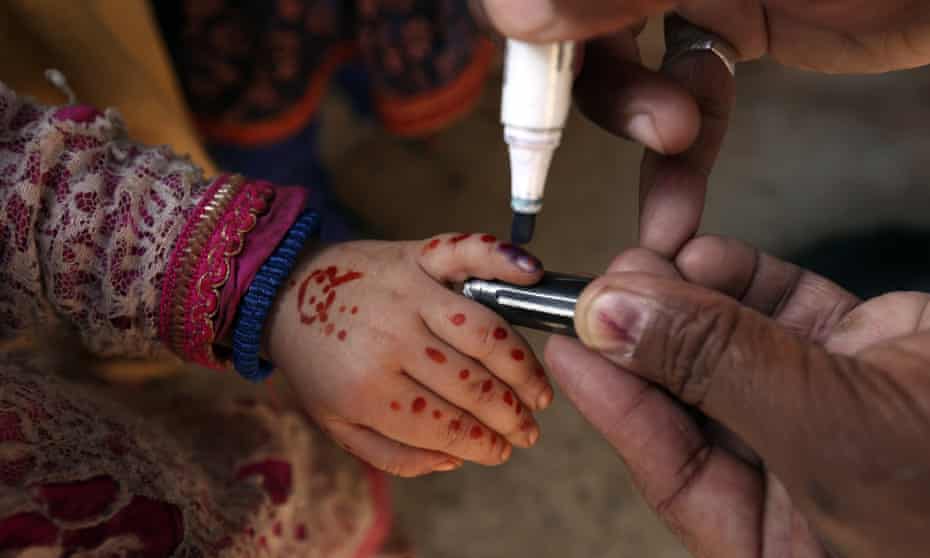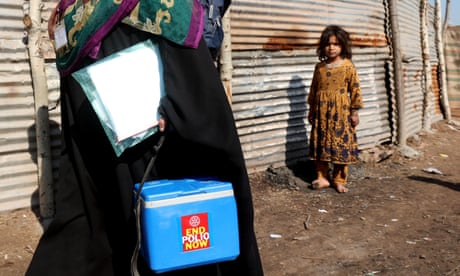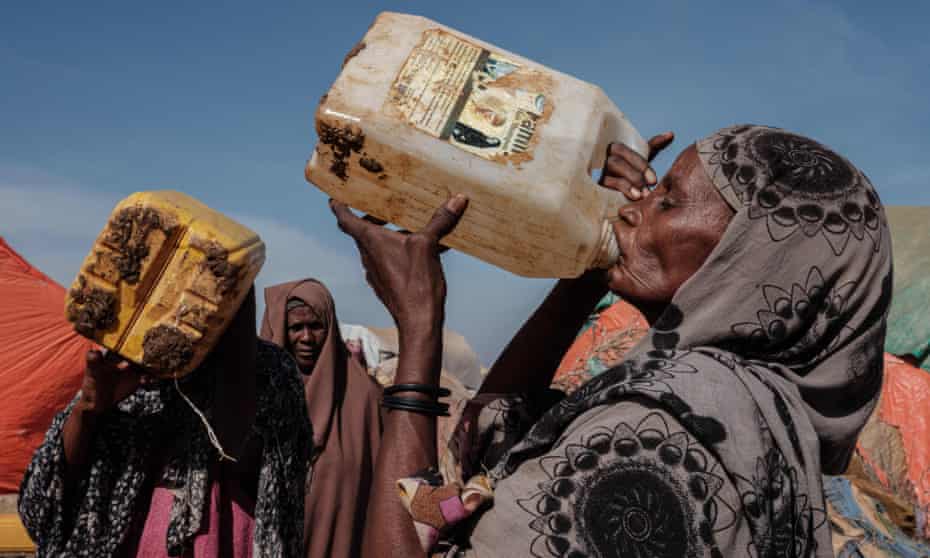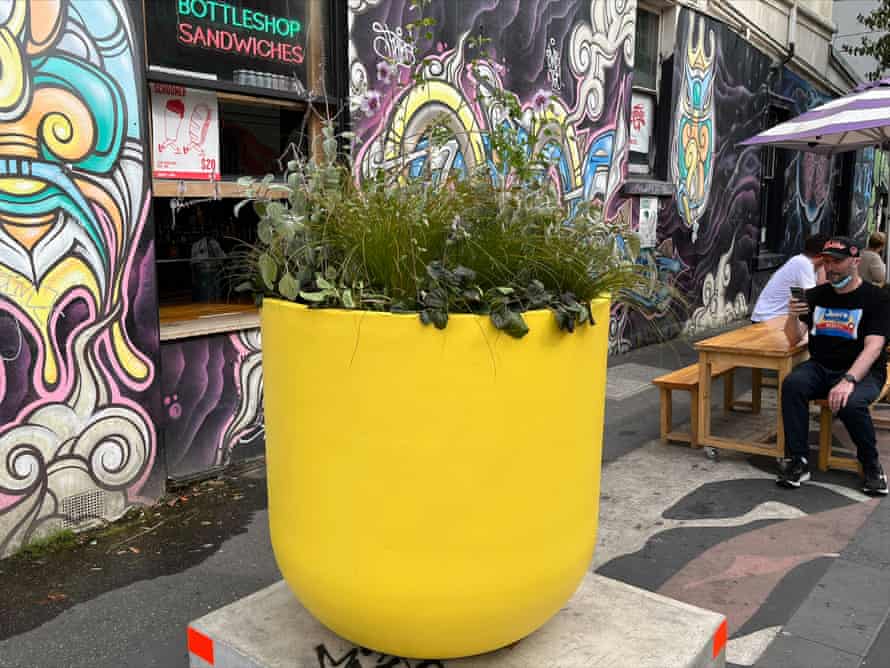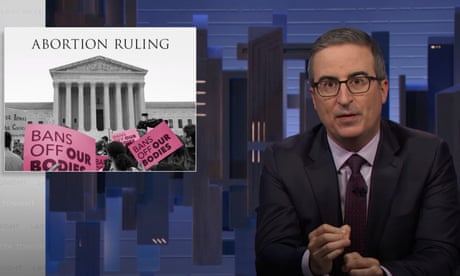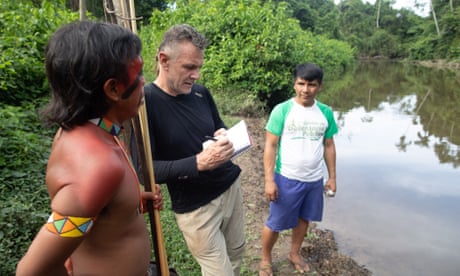Anticyclone Scipio turns up heat in Mediterranean and north Africa
Analysis: Andalucía in Spain could exceed 40C this week, with parts of Italy and Africa also affected
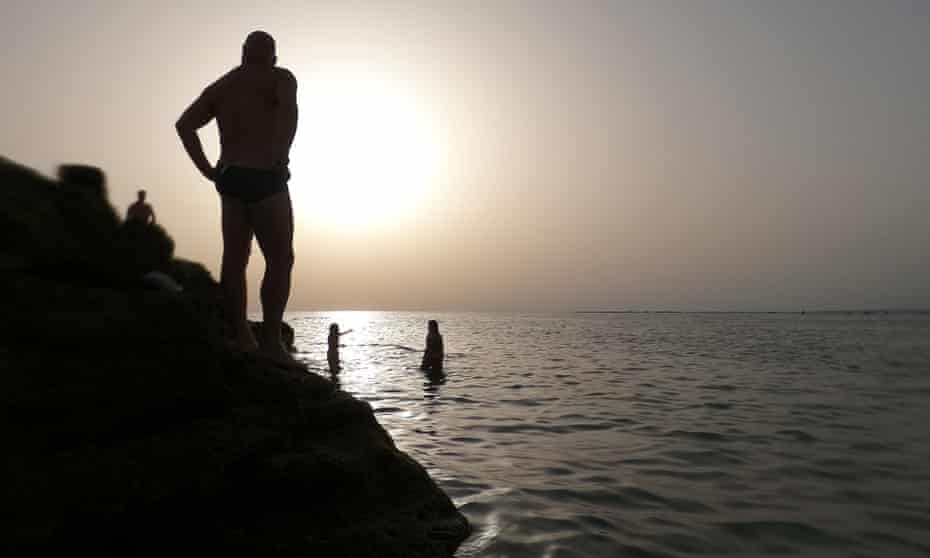
Searing heat in Cádiz, an ancient port city in Andalucía, south-western Spain. Photograph: Juan Carlos Toro/Getty Images
Alice Fowler (Metdesk)Mon 6 Jun 2022
Extreme and prolonged heat engulfing parts of Spain, Italy and north Africa shows no signs of easing this week. Anticyclone Scipio has been bringing hot air from Africa to the central Mediterranean, causing weeks of scorching temperatures.
An anticyclone – an area of high pressure – is the opposite of a cyclone. Some countries name anticyclones if they are likely to bring severe weather such as searing heat. This is similar to the way most countries, including the UK, name areas of low pressure, or cyclones, if they bring severe weather in the form of heavy rain or strong winds.
Temperatures are forecast to reach the high 30s Celsius across the Mediterranean, with some parts of Spain, Italy and north Africa in the low 40s. The Andalucía region of Spain is predicted to exceed 40C most days this week – about 4-5C above the climate average.
While anticyclonic heat is not unusual in the Mediterranean, the unrelenting nature of this event has brought an early and dramatic start to the summer, with healthcare centres in the Canary Islands and Balearics on high alert.
Alice Fowler (Metdesk)Mon 6 Jun 2022
Extreme and prolonged heat engulfing parts of Spain, Italy and north Africa shows no signs of easing this week. Anticyclone Scipio has been bringing hot air from Africa to the central Mediterranean, causing weeks of scorching temperatures.
An anticyclone – an area of high pressure – is the opposite of a cyclone. Some countries name anticyclones if they are likely to bring severe weather such as searing heat. This is similar to the way most countries, including the UK, name areas of low pressure, or cyclones, if they bring severe weather in the form of heavy rain or strong winds.
Temperatures are forecast to reach the high 30s Celsius across the Mediterranean, with some parts of Spain, Italy and north Africa in the low 40s. The Andalucía region of Spain is predicted to exceed 40C most days this week – about 4-5C above the climate average.
While anticyclonic heat is not unusual in the Mediterranean, the unrelenting nature of this event has brought an early and dramatic start to the summer, with healthcare centres in the Canary Islands and Balearics on high alert.
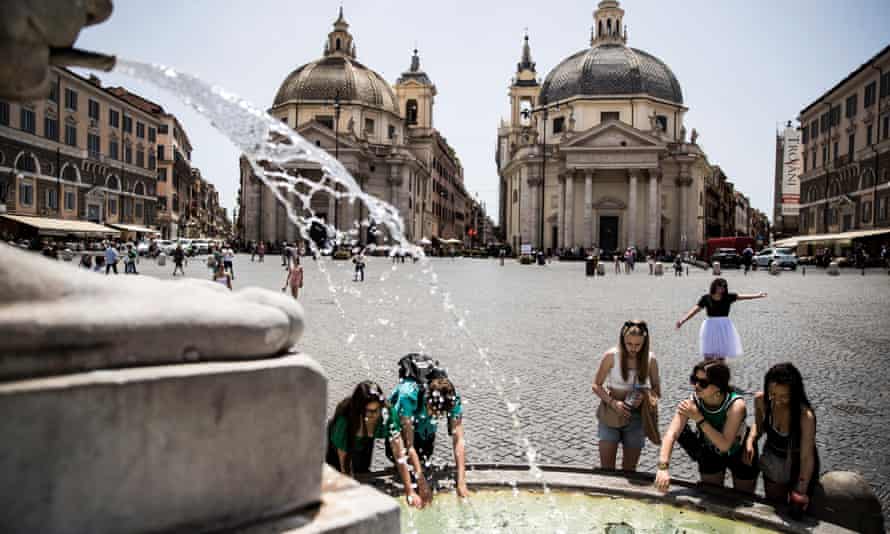
People cool off by a fountain in Piazza del Popolo, Rome, as Anticyclone Scipio raises temperatures in Italy.
Photograph: Angelo Carconi/EPA
Meanwhile, low pressure across east Asia will bring high rainfall totals to parts of south-eastern China, Taiwan and Japan. At first, the downpours – more than 60mm on Tuesday – will hit Guangdong and Fujian in China as well as northern Taiwan. But as low pressure drifts north-eastwards, torrential rain will extend from northern Taiwan and up the East China Sea before reaching the Kagoshima region of Japan before the weekend. Daily rainfall could reach 65-80mm in these areas, bringing a significant risk of flooding.
Torrential rain in south-eastern China in the past two weeks has killed 15 people in landslides and building collapses. Heavy rain has also damaged roads, bridges and telecommunications facilities in Yunnan province and Guangxi.
Further south, significant rain is expected across South Island, also known as Te Waipounamu, in New Zealand. Its northern coastline including the Southern Alps could experience more than 50mm of rain a day between Tuesday and Thursday, with further downpours expected this weekend. Cumulative rainfall totals for the northern coastline could exceed 250-300mm this week.
Meanwhile, low pressure across east Asia will bring high rainfall totals to parts of south-eastern China, Taiwan and Japan. At first, the downpours – more than 60mm on Tuesday – will hit Guangdong and Fujian in China as well as northern Taiwan. But as low pressure drifts north-eastwards, torrential rain will extend from northern Taiwan and up the East China Sea before reaching the Kagoshima region of Japan before the weekend. Daily rainfall could reach 65-80mm in these areas, bringing a significant risk of flooding.
Torrential rain in south-eastern China in the past two weeks has killed 15 people in landslides and building collapses. Heavy rain has also damaged roads, bridges and telecommunications facilities in Yunnan province and Guangxi.
Further south, significant rain is expected across South Island, also known as Te Waipounamu, in New Zealand. Its northern coastline including the Southern Alps could experience more than 50mm of rain a day between Tuesday and Thursday, with further downpours expected this weekend. Cumulative rainfall totals for the northern coastline could exceed 250-300mm this week.
